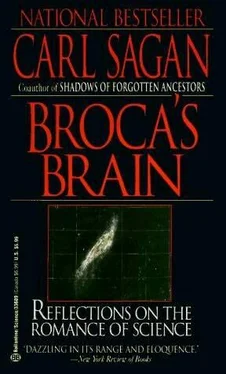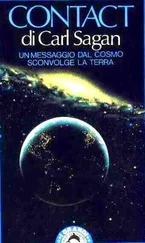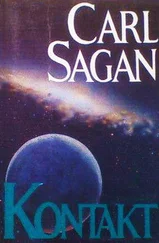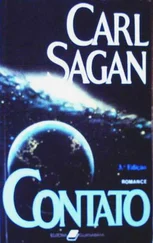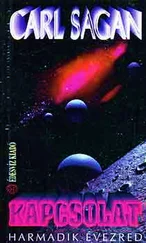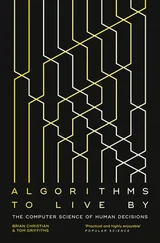Carl Sagan - Broca's Brain - The Romance of Science
Здесь есть возможность читать онлайн «Carl Sagan - Broca's Brain - The Romance of Science» весь текст электронной книги совершенно бесплатно (целиком полную версию без сокращений). В некоторых случаях можно слушать аудио, скачать через торрент в формате fb2 и присутствует краткое содержание. Жанр: Физика, на английском языке. Описание произведения, (предисловие) а так же отзывы посетителей доступны на портале библиотеки ЛибКат.
- Название:Broca's Brain: The Romance of Science
- Автор:
- Жанр:
- Год:неизвестен
- ISBN:нет данных
- Рейтинг книги:3 / 5. Голосов: 1
-
Избранное:Добавить в избранное
- Отзывы:
-
Ваша оценка:
- 60
- 1
- 2
- 3
- 4
- 5
Broca's Brain: The Romance of Science: краткое содержание, описание и аннотация
Предлагаем к чтению аннотацию, описание, краткое содержание или предисловие (зависит от того, что написал сам автор книги «Broca's Brain: The Romance of Science»). Если вы не нашли необходимую информацию о книге — напишите в комментариях, мы постараемся отыскать её.
Broca's Brain: The Romance of Science — читать онлайн бесплатно полную книгу (весь текст) целиком
Ниже представлен текст книги, разбитый по страницам. Система сохранения места последней прочитанной страницы, позволяет с удобством читать онлайн бесплатно книгу «Broca's Brain: The Romance of Science», без необходимости каждый раз заново искать на чём Вы остановились. Поставьте закладку, и сможете в любой момент перейти на страницу, на которой закончили чтение.
Интервал:
Закладка:
WITH THE DEPLETION of fossil fuels I think it very likely that automobiles powered by internal-combustion engines will be with us for at most a few decades longer. The transportation of the future will simply have to be different. We can imagine quite comfortable and adequately speedy steam, solar, fuel-cell or electric ground vehicles, generating very little pollution and employing a technology comfortably accessible to the user.
Many responsible medical experts are concerned that we in the West-and increasingly even in developing countries-are becoming too sedentary. Driving an automobile exercises very few muscles. The demise of the automobile surely has many positive aspects when viewed in the long run, one of which is a return to the oldest transportation mechanism, walking, and to bicycling, which is in many ways the most remarkable.
I can easily imagine a healthy and stable future society in which walking and bicycling are the primary means of transportation; with pollution-free low-speed ground cars and railed public transportation systems widely available, and the most sophisticated transportation devices used relatively rarely by the average person. The one application of transportation technology that requires the most sophisticated technology is spaceflight. The returns in immediate practical benefits, scientific knowledge and appealing exploration provided by unmanned spaceflight are very impressive, and I would expect an increasing rate of space-vehicle launches by many nations in the next few decades, using more subtle forms of transportation, as described in the previous chapter. Nuclear electric, solar sailing and ion propulsion schemes have been proposed and are to some degree under development. As nuclear-fusion power plants are developed for Earth-bound applications in a few decades, there should be a development of fusion space engines as well.
The gravitational forces of planets have already been used to give velocities otherwise unobtainable. Mariner 10 reached Mercury only because it flew so close to Venus that Venus’ gravity provided a significant boost in speed. And Pioneer 10 was boosted into an orbit that will carry it out of the solar system entirely, only because of a close passage by the giant planet Jupiter. In a way Pioneer 10 and 11 and Voyager 1 and 2 are our most advanced transportation systems. They are leaving the solar system at a speed of roughly 43,000 miles per hour, carrying messages to anyone who may intercept them out there in the dark of the night sky from the people of the Earth-who, only a little while ago, could travel no faster than a few miles per hour.
CHAPTER 18

O for a Muse of fire, that would ascend
The brightest heaven of invention…
WILLIAM SHAKESPEARE,
Henry V , Prologue
IT IS A LAZY afternoon in an exquisite New England autumn. In about ten weeks it will be January 1, 1900, and your diary, into which are committed the events and ideas of your young life, will never again bear an entry with a date in the 1800s. You have just turned seventeen. You are looking forward to being a sophomore in high school, but you are now at home, in part because your mother is seriously ill with tuberculosis and in part because of your own chronic stomach pains. You are bright, with a certain flair for the sciences, but no one has ever indicated that you might have an extraordinary talent. You are complacently viewing the New England countryside from the limb of a tall old cherry tree which you have climbed, when suddenly you are struck by an idea, an overpowering and compelling vision that it might be possible, in fact rather than in fancy, to voyage to the planet Mars.
When you descend from the cherry tree you know that you are a very different boy from the one who climbed it. Your life’s work is clearly set out for you, and for the next forty-five years your dedication never wavers. You have been smitten by the vision of flight to the planets. You are deeply moved and quietly awed by the vision in the cherry tree. The next year, on the anniversary of that vision, you climb the tree again to savor the joy and meaning of the experience; and forever after you make a point in your diary of calling the anniversary of that experience “Anniversary Day”-every October 19 until your death in the middle 1940s, by which time your theoretical insights and practical innovations have solved essentially all technological impediments to interplanetary flight.
Four years after your death a WAC Corporal mounted on the nose of a V-2 is successfully fired to an altitude of 250 miles, for all practical purposes to the threshold of space. All essential design elements of the WAC Corporal and the V-2, and the very concept of the multiple staging of rockets, have been worked out by you. A quarter of a century later, unmanned space vehicles will have been launched to all the planets known to ancient man; a dozen men will have set foot on the Moon; and two exquisitely miniaturized spacecraft named Viking will be on their way to Mars to attempt the first search for life on that planet.
ROBERT H. GODDARD never questioned or equivocated on the resolve he made in the cherry tree on the farm of his great-aunt Czarina in Worcester, Massachusetts. While there were others who had comparable visions-notably Konstantin Eduardovich Tsiolkovsky in Russia-Goddard represented a unique combination of visionary dedication and technological brilliance. He studied physics because he needed physics to get to Mars. He was for many years professor of physics and chairman of the physics department at Clark University in his hometown of Worcester.
In reading the notebooks of Robert Goddard, I am struck by how powerful his exploratory and scientific motivations were, and how influential speculative ideas-even erroneous ones-can be on the shaping of the future. In the few years surrounding the turn of the century, Goddard’s interests were profoundly influenced by the idea of life on other worlds. He was intrigued by the claims of W. H. Pickering, of the Harvard College Observatory, that the Moon has a perceptible atmosphere, active volcanism, variable frost patches, and even changing dark markings, which Pickering interpreted variously as the growth of vegetation or even as the migration of enormous insects across the floor of the crater Eratosthenes. Goddard was captivated by the science fiction of H. G. Wells and Garrett P. Serviss, particularly the latter’s Edison’s Conquest of Mars , which, Goddard reported, “gripped my imagination tremendously.” He attended and enjoyed lectures by Percival Lowell, who was an eloquent advocate of the proposition that intelligent beings inhabit the planet Mars. And yet, through all of this, while his imagination was intensely stimulated, Goddard managed to retain a sense of skepticism very rare in young people given to interplanetary epiphanies high up in cherry trees: “The actual conditions may be entirely different… from those which Professor Pickering suggests… The only antidote for fallacies is-in a word-to take nothing for granted.”
On January 2, 1902, we know from Goddard’s notebook, he wrote an essay on “The Habitability of Other Worlds.” The paper had not been found among Goddard’s writings, which seemed to me a great pity, since it might have given us a better understanding of the extent to which the search for extraterrestrial life was a prime motive in Goddard’s lifework. [13]
In his early postdoctoral years Goddard successfully pursued an experimental verification of his ideas on solid- and liquid-fueled rocket flight. In this endeavor he was supported principally by two men: Charles Greeley Abbott and George Ellery Hale. Abbott was then a young scientist at the Smithsonian Institution, of which he later became secretary, the quaint designation by which the executive officer of that organization is still known. Hale was the driving force behind American observational astronomy at the time; before he died he had founded the Yerkes, Mount Wilson and Mount Palomar observatories, each housing, in its time, the largest telescope in the world.
Читать дальшеИнтервал:
Закладка:
Похожие книги на «Broca's Brain: The Romance of Science»
Представляем Вашему вниманию похожие книги на «Broca's Brain: The Romance of Science» списком для выбора. Мы отобрали схожую по названию и смыслу литературу в надежде предоставить читателям больше вариантов отыскать новые, интересные, ещё непрочитанные произведения.
Обсуждение, отзывы о книге «Broca's Brain: The Romance of Science» и просто собственные мнения читателей. Оставьте ваши комментарии, напишите, что Вы думаете о произведении, его смысле или главных героях. Укажите что конкретно понравилось, а что нет, и почему Вы так считаете.
